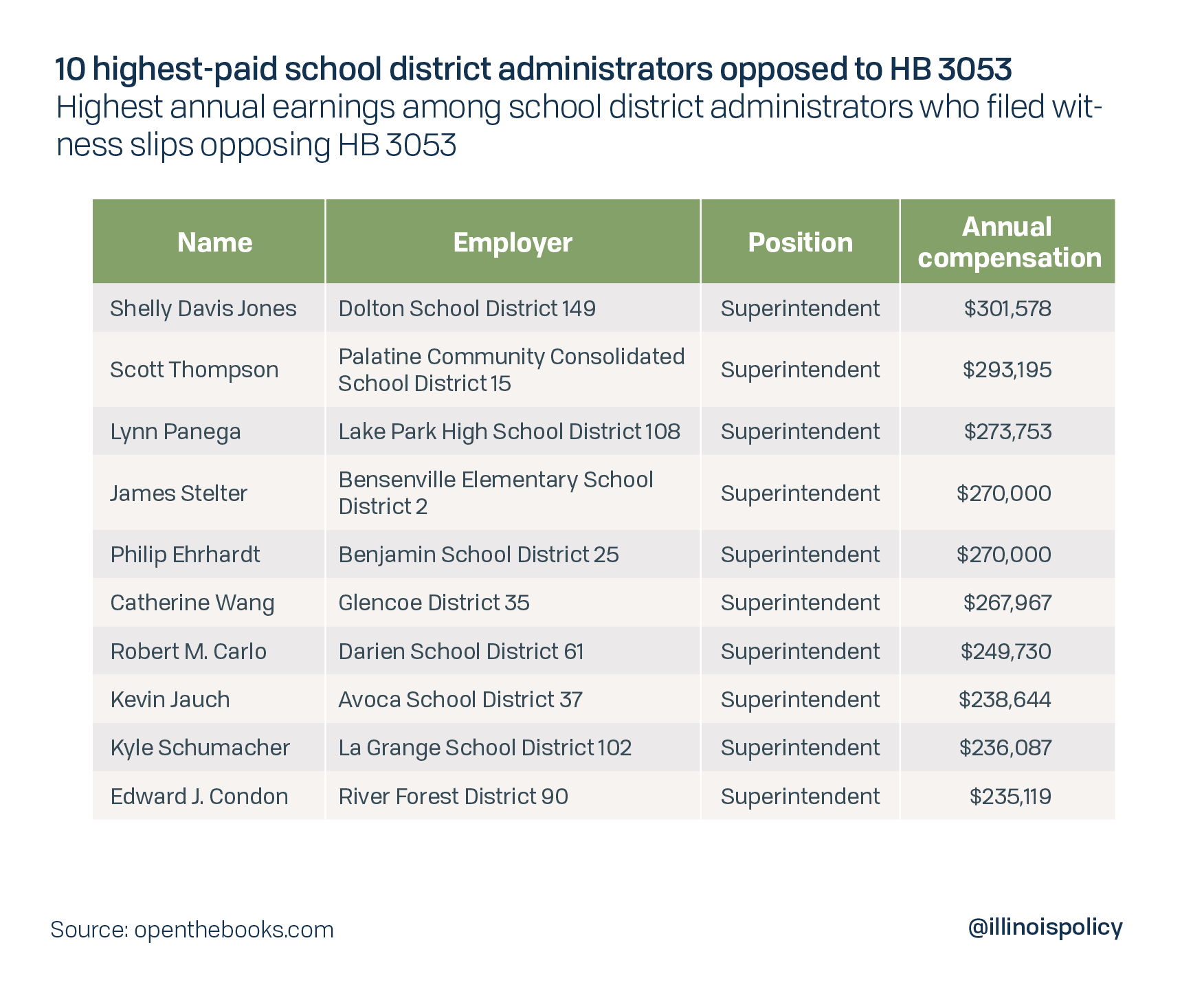Illinois state senators on May 15 heard testimony on a real bright spot in the General Assembly this year.
But local government employees with some extraordinary paychecks are trying to snuff it out.
House Bill 3053 is also known as the Classrooms First Act. That’s because it prioritizes spending on teachers, supplies and services that students need over its taxpayer-funded opponents: school district superintendents.
Illinois is the nation’s only state to spend more than $1 billion a year on “general administration” costs in education, according to U.S. Census Bureau data. That’s because Illinois has too many school districts serving too few schools and too few students.
The state’s 852 school districts intercept education dollars before they reach the classroom. About a quarter of those school districts serve as an extra administrative layer atop a single school. And the average Illinois school district serves 2,400 students, the sixth-lowest average in the nation. If Illinois’ average district enrollment was on par with Virginia – a state with similar demographics and better educational outcomes – it would have just 210 districts, 644 fewer than today.
Enter the Classrooms First Act: it would set up a statewide commission with a goal of reducing the number of Illinois school districts by 25%. After the commission’s study is complete, its recommendations would go on local ballots, and voters would get to decide whether school district consolidation would be the right fit for their community.
With around two-thirds of most property tax bills going to local school districts, and no boogeyman of “killing a mascot” (schools have those, not school districts), the appetite for more effective ways to spend education dollars is strong.
But to hundreds of Illinois school district administrators, that doesn’t sound like a good idea. They filed witness slips opposing the bill.
A crosscheck of those witness slips with publicly available salary information show why: more than 130 are taking home six-figure paychecks, with 26 making more than $200,000. Over the course of a career, salaries like that in Illinois mean pension benefits easily reaching $2 million to $6 million over the course of their retirements.
Here are the district details of just a few highly compensated administrators who filed in opposition to the Classrooms First Act, with salary information pulled from transparency nonprofit Open the Books.
Keep in mind that Illinois’ average number of students per district is among the lowest in the nation:
River Trails School District 26 Superintendent Nancy Wagner makes more than $209,000 annually. Her district, located in Mount Prospect, serves 1,552 students, or 35% less than the state average.
Three handsomely paid administrators working for Gurnee School District 56 – Superintendent Colleen Pacatte ($194,560), Director of Business Sheila Peckler ($171,515) and Director of Pupil Services Tamara Kroc ($150,794) – filed in opposition. Their district serves 2,080 students, which is 13% lower than the state average.
Lemont High School District 210 Superintendent Mary Ticknor makes more than $226,000. Her district oversees one high school with 1,418 students, or 40% lower than the state average.
Finally, Benjamin School District 25 Superintendent Philip Ehrhardt takes home a whopping $270,000 salary. His district in suburban West Chicago serves 618 students, 70% lower than the state average, split between a middle school and an elementary school. He is set to retire in June.

These men and women are not alone, of course. More than 9,000 school district administrators in Illinois collected six-figure salaries as of 2017.
But their choice to publicly oppose this bill speaks volumes.
Thankfully, rank-and-file taxpayers submitted twice as many witness slips in favor of the bill as district administrators did against it. It has already passed the House unanimously. And the Senate Government Accountability and Pensions Committee passed it unanimously as well.
Some tweaks are expected leading up to a full Senate vote.
But there should be no compromise with those who are looking out for their own bottom line above the good of the state.